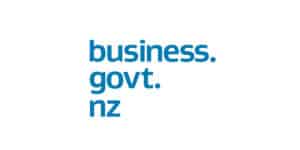Public transport fares increase
Public transport fares in Auckland rose from 4 February “to help meet significant and sustained operating cost increases”. AT reviews public transport fares every year; this is the second time fares have increased since 2021.
A weighted average increase of 6.2 per cent has been implemented across AT’s fare structure. Standard adult fares will increase between 6 and 40 cents per journey on buses, trains, and ferries. Fares for longer journeys are going up by a smaller percentage.
| Standard fare increases | ||||
| Fare type | Distance | Previous fare | New fare | Increase |
| Adult | 1 zone | $2.37 | 2.60 | +$0.23 |
| Adult | 2 zones | $4.20 | $4.45 | +$0.25 |
| Adult | 3 zones | $5.80 | $6.00 | +$0.20 |
| Adult | 4 zones | $7.18 | $7.40 | +$0.12 |
| Youth (16-24) | 1 zone | $1.18 | $1.25 | +$0.07 |
| Youth (16-24) | 2 zones | $2.10 | $2.20 | +$0.10 |
| Youth (16-24) | 3 zones | $2.90 | $3.00 | +$0.10 |
| Youth (16-24) | 4 zones | $3.59 | $3.70 | +$0.11 |
Despite these changes, passenger numbers are forecast to grow, thus generating more revenue to help AT meet its operating costs. It is hoped that this growth will be accelerated by the introduction of contactless payments for fares via debit/credit card, Apple Pay and Google Pay later this year.
RUC applies to hybrids and EVs from 1 April
Owners of light electric vehicles will need to buy and display a road user charge (RUC) licence from next month.
You’ll need to purchase RUC if your vehicle is powered fully or partly from externally supplied electricity, and weighs less than 3.5 tonnes. Plug-in hybrid vehicles (PHEVs) are therefore included, but self-charging hybrids (i.e., those that do not plug in to recharge) are not.
The RUC rate for fully electric vehicles (EVs) will be $76 per 1000km. The rate for PHEVs will be $53 per 1000km, which is lower to recognise that some fuel excise duty is paid when petrol is purchased. There will also be an admin fee: $12.44 for a licence bought online or $13.71 bought at an agent.
Registered owners should receive written confirmation from Waka Kotahi NZTA prior to April, confirming the relevant details.
EVs have been exempt from RUC since 2009. This exemption was implemented until electric vehicles accounted for about 2 per cent of New Zealand’s light vehicle fleet. With approximately 100,000 light EVs on the roads, that point has now been reached.
Driver’s licence scam
In one of the latest phishing scams, fraudsters are offering driver’s licences online or through social media. Waka Kotahi is warning that these scammers may be using its branding to look convincing.
- You must go to a Waka Kotahi driver licensing agent in person to apply for a licence. You cannot apply online.
- Approved driver licensing agents are the Automobile Association (AA) and Vehicle Testing New Zealand (VTNZ). You should only apply for a driver licence through these organisations.
- One exception to these rules is if you are applying for a replacement driver’s licence card online for one that’s been stolen or lost. This will go through Waka Kotahi’s website, and you’ll need a RealMe verified identity to log in.
Remember: do not give personal or payment details to anyone offering driver’s licences online. And, please report any suspicious social media activity.
Transport




